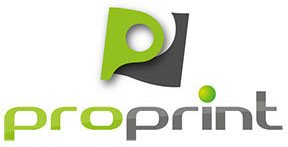Eco Printing
Everyone wants to save the world. We decided to begin with a pollution generating industry – the eco printing business and produce eco products and eco stationery.
Commercial printing is a chemical-intensive industry that produces many types of waste. The waste comes from a variety of activities, such as plate-making, image processing, printing and finishing. Some of the wastes are classified as hazardous by federal or state regulations; others, though not necessarily hazardous, can nevertheless be damaging to the environment if not handled properly; and all require proper treatment and / or disposal.
Eco printing signifies the use of our environmentally responsible printing process and produce eco products and eco stationery. A true “green printer” goes beyond choosing recycled paper and soy ink. We infuse and publicly demonstrate our commitment to sustainable solutions and continuously engage with sustainability efforts in our day-to-day operations. That way, even our employees have the freedom to enjoy working in a cleaner, safer and more environmentally-conscious environment.
Vegetable-based ink is made with vegetable oil, such as soybean or corn oil, as a substitute for petroleum or mineral oils. Vegetable-based inks significantly reduce the amount of volatile organic compounds (VOCs) released into the air during printing.
For example, soy ink is naturally low in VOCs and usage can reduce emissions that cause air pollution. Because the waste of soy ink is not considered hazardous, it can be treated more easily, completely and cost-effectively. Using soy inks is also helpful when it comes to paper recycling, as the deinking process is easier and results in less fibre damage to recycled paper. The soy ink waste that is produced from the deinking process is non-hazardous.
Conventional inks contain high levels of solvent. If landfill is used to dispose of printed waste, then the contained solvents leach out into the water table. Also, if mineral oil inks are incinerated, they only add to greenhouse gasses as the inks are a non-sustainable resource. Hence, if any non-sustainable product is incinerated, it only adds to the levels of carbon dioxide in our atmosphere. Vegetable oils are a sustainable resource, hence, adding a preventive option of incinerated products from releasing extra carbon into the atmosphere.
We are constantly finding ways and approaching printing methods that are conversant with the ethics of sustainability, and never cease to oxygenize the planet in every way we possibly can.

